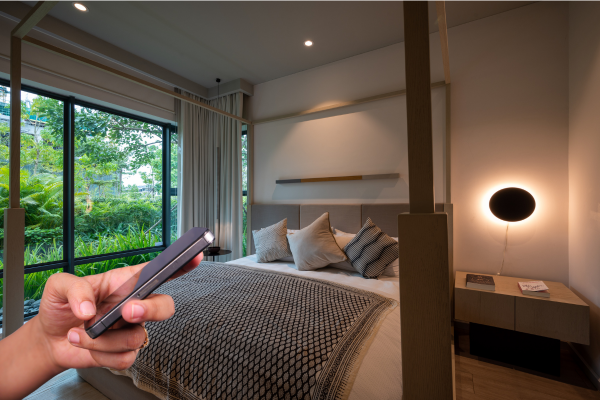
Everyone deserves a restful night’s sleep. However, if snoring, sleep apnea, or restlessness are preventing you from getting quality shut-eye, you may find yourself exploring various diets, gadgets, and medications, potentially overlooking one remarkably effective solution: your mattress.
It might sound surprising, but your bed could be hindering your sleep.
While it may seem contradictory, utilizing modern technology might actually help you disconnect and enhance your rest. Enter smart beds—innovative mattresses equipped with sleep-tracking features that adapt to your needs and analyze your nightly habits. Consider them your personal sleep coach, minus the whistle.
What Exactly Is a Smart Mattress?
If smartphones are compact computers, smart mattresses serve as your knowledgeable partner in sleep. These cutting-edge beds include embedded sensors that monitor your sleep patterns, tracking variables such as breathing and body position.
Connected apps process this data and offer recommendations for improving your sleep quality. Some models, like Bryte Balance Smart Beds, even adjust their firmness or elevate your head slightly to mitigate snoring before it disturbs you or your partner.
Dr. Sleep (not an actual doctor, but bear with us) might suggest this is the modern remedy for your sleep challenges.
How Smart Beds Can Enhance Your Health
Consider the Bryte Balance Smart Bed. This advanced mattress tracks essential metrics such as:
- Sleeping positions
- Breathing and heart rate
- Circadian rhythm and sleep cycles
With this information, the mattress learns your habits and responds accordingly—adjusting your position when it detects snoring or discomfort. Over time, this can lead to reduced tossing and turning, fewer disruptions, and deeper restorative sleep.
The Sleep-Hormone Connection
A well-regulated sleep cycle does more than make you feel rejuvenated; it also maintains hormonal balance. Growth hormone, crucial for muscle recovery and regeneration, is released during sleep. Insufficient sleep can diminish this valuable hormone.
The same principle applies to insulin—poor sleep quality can elevate blood sugar levels, leading to groggier mornings and sluggish afternoons. Smart mattresses assist healthcare providers in monitoring these trends, providing insights into how your sleep could impact your overall health.
Identifying Undetected Sleep Issues
Are you feeling fatigued after eight hours of sleep? Your smart mattress might have the answers.
Advanced models can monitor for signs of:
Some even claim the ability to detect early symptoms of illnesses like the flu or restless leg syndrome, prompting you to consult your healthcare provider when necessary.
Additional Advantages of a Smart Bed
- Monitors your breathing
AI sensors assess your breathing rate and oxygen levels, providing insights into the severity of sleep apnea or other respiratory concerns. - Adjusts your position
Say goodbye to gentle nudges from your partner—these beds can subtly raise your head if snoring occurs, facilitating better airflow. - Regulates temperature
Smart beds can detect your body temperature and make necessary adjustments to keep you comfortably cool, which can be particularly beneficial for conditions like sleep apnea.
Final Thoughts: Is a Smart Bed Worth It?
While smart mattresses like the Bryte Balance aren’t miraculous solutions, they are intelligent tools that help you gain insights into your sleeping patterns and any obstacles you may face. This understanding can lead to enhanced energy levels, improved health, and more productive days.
Therefore, while it may not be the moment to part with your pillow just yet, upgrading your mattress could be the best decision for your sleep quality.







